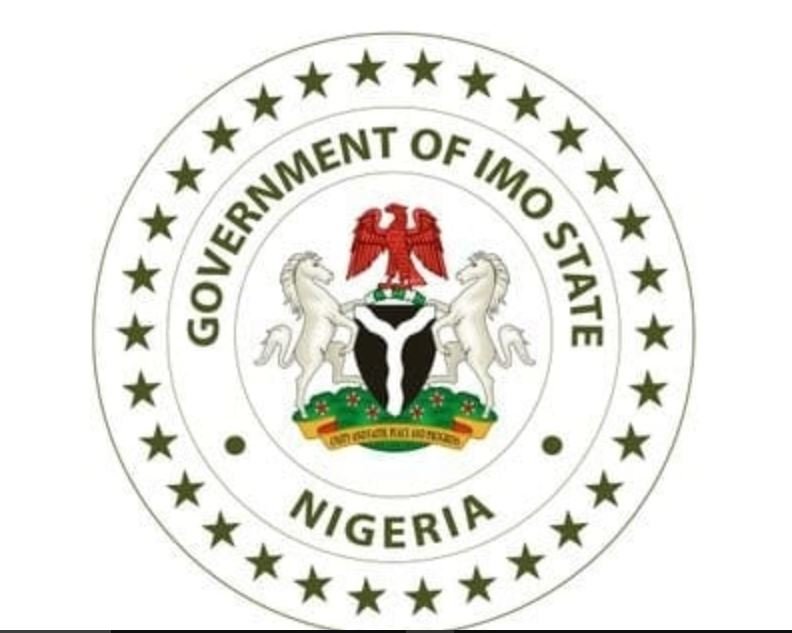The population of Imo State in 2025 is projected to be approximately 6,013,800, based on a growth rate of 3.25% per year from the 2022 population of 5,459,300, which represents an increase of about 10.2% over three years.
Imo State remains one of Nigeria’s densely populated states, which has contributed significantly to the country’s overall population.
READ ALSO: Facts About Anambra State Population (2025)
How Has Imo State’s Population Changed Over The Years?
Imo State’s population In 2006 was recorded at 3,927,563 during a national census. By 2016, the population had grown significantly to approximately 5,408,756.
Higher birth rates pushed this rise over a decade. In 2022, the population continued to increase, reaching about 5,459,300, making Imo one of Nigeria’s most populated states, accounting for around 2.8% of the country’s total population.
However, projections suggest that in 2025, the population of Imo State will rise to approximately 6,013,800. This shows an increase of about 10.1% from the 2022 estimate. With an annual growth rate of 3.25%, the state is expected to continue experiencing demographic changes.
READ ALSO: Facts About Akwa Ibom State Population (2025)
Imo State Population By Local Government Area
| No | Local Government Area | Population Estimation |
|---|---|---|
| 1 | Abo-Mbaise | 272,700 |
| 2 | Ahiazu-Mbaise | 240,400 |
| 3 | Ehime-Mbano | 183,500 |
| 4 | Ezinihitte | 236,600 |
| 5 | Ideato North | 220,100 |
| 6 | Ideato South | 223,900 |
| 7 | Ihitte/Uboma | 168,000 |
| 8 | Ikeduru | 210,100 |
| 9 | Isiala-Mbano | 278,100 |
| 10 | Isu | 230,400 |
| 11 | Mbaitoli | 335,100 |
| 12 | Ngor-Okpala | 221,400 |
| 13 | Njaba | 201,400 |
| 14 | Nkwerre | 113,600 |
| 15 | Nwangele | 179,500 |
| 16 | Obowo | 165,200 |
| 17 | Oguta | 199,900 |
| 18 | Ohaji/Egbema | 256,200 |
| 19 | Okigwe | 186,500 |
| 20 | Orlu | 200,500 |
| 21 | Orsu | 168,600 |
| 22 | Oru East | 157,300 |
| 23 | Oru West | 162,800 |
| 24 | Owerri Municipal | 177,200 |
| 25 | Owerri North | 250,100 |
| 26 | Owerri West | 143,400 |
| 27 | Unuimo | 140,600 |
The Demographics Of Imo State
Age Group
| Age Group | Population Estimation | Percentage |
|---|---|---|
| 0–4 | 1,200,000 | 19.93% |
| 5–9 | 900,000 | 14.95% |
| 10–14 | 800,000 | 13.29% |
| 15–19 | 700,000 | 11.63% |
| 20–24 | 600,000 | 9.96% |
| 25–29 | 500,000 | 8.32% |
| 30–34 | 400,000 | 6.64% |
| 35–39 | 350,000 | 5.81% |
| 40–44 | 300,000 | 4.98% |
| 45–49 | 250,000 | 4.15% |
| 50–54 | 200,000 | 3.32% |
| 55–59 | 150,000 | 2.49% |
| 60+ | 150,000 | 2.49% |
Gender
| Gender | Populaton Estmation | Percentage |
|---|---|---|
| Male | 2,950,000 | 49.07% |
| Female | 3,063,800 | 50.93% |
Ethnicity
| Ethnicity | Population Estimation | Percentage |
|---|---|---|
| Igbo | 5,900,000 | 98% |
| Other Ethnicities (e.g., Hausa, Yoruba) | 113,800 | 2% |
Religion
| Religion | Population Estimation | Percentage |
|---|---|---|
| Christianity | 5,500,000 | 91.5% |
| Odinani (Traditional Religion) | 400,000 | 6.64% |
| Islam | 113,800 | 1.89% |

